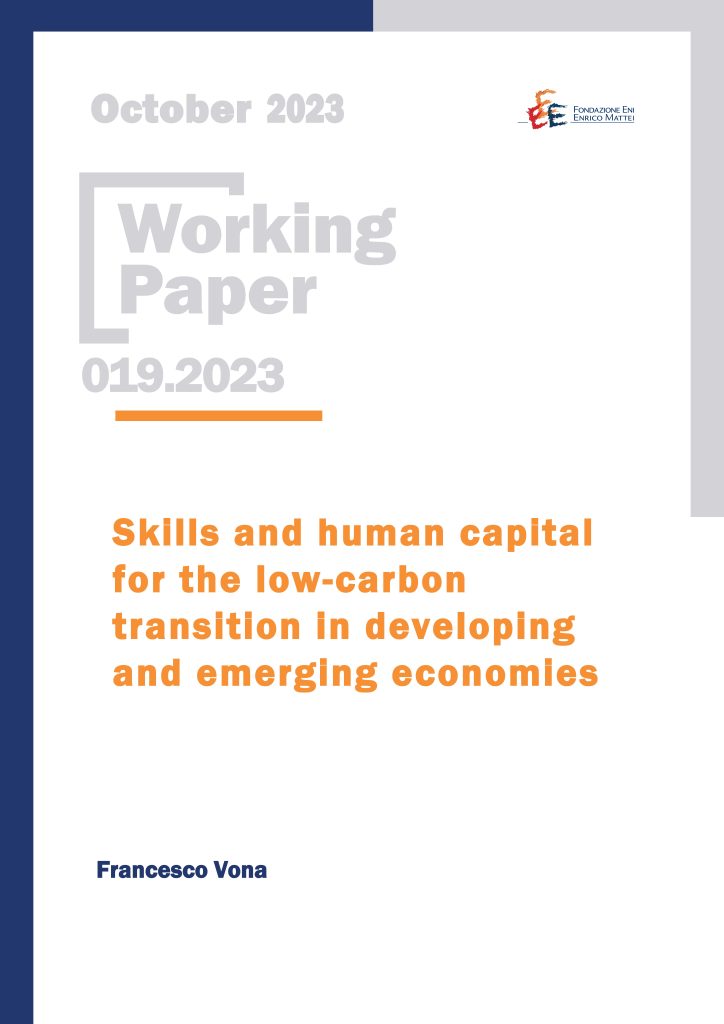Skills and human capital for the low-carbon transition in developing and emerging economies

25.10.2023
Francesco Vona (University of Milan and Fondazione Eni Enrico Mattei)
J24, Q56, O13, O14
Skills, tasks, green economy, developing and emerging economies, structural change, green technological change, labour market institutions
Developing and emerging economies face enormous challenges to reconcile economic development and job creation with decarbonization. An essential aspect of such “early-stage” decoupling of growth and carbon emissions is to develop a skill base that favours the diffusion of green productions and technologies. This paper sheds light on the role of the adjustments in the skill supply and of labour market institutions to pursue such early stage decoupling in developing and emerging economies. The paper begins by defining green growth strategies and the associated green skill requirement. To overcome measurement issues and data limitations, it then assesses the advantages and disadvantages of the task-based approach to green labour markets, emphasizing critical issues for developing countries as well as the opportunities to collect original data. Finally, it derives some policy recommendations to solve the coordination failure between investments in skills, particularly technical skills, and green technology adoption.
***
Suggested citation: F. Vona, ‘Skills and human capital for the low-carbon transition in developing and emerging economies’, Nota di Lavoro 019.2023, Milano, Italy: Fondazione Eni Enrico Mattei
